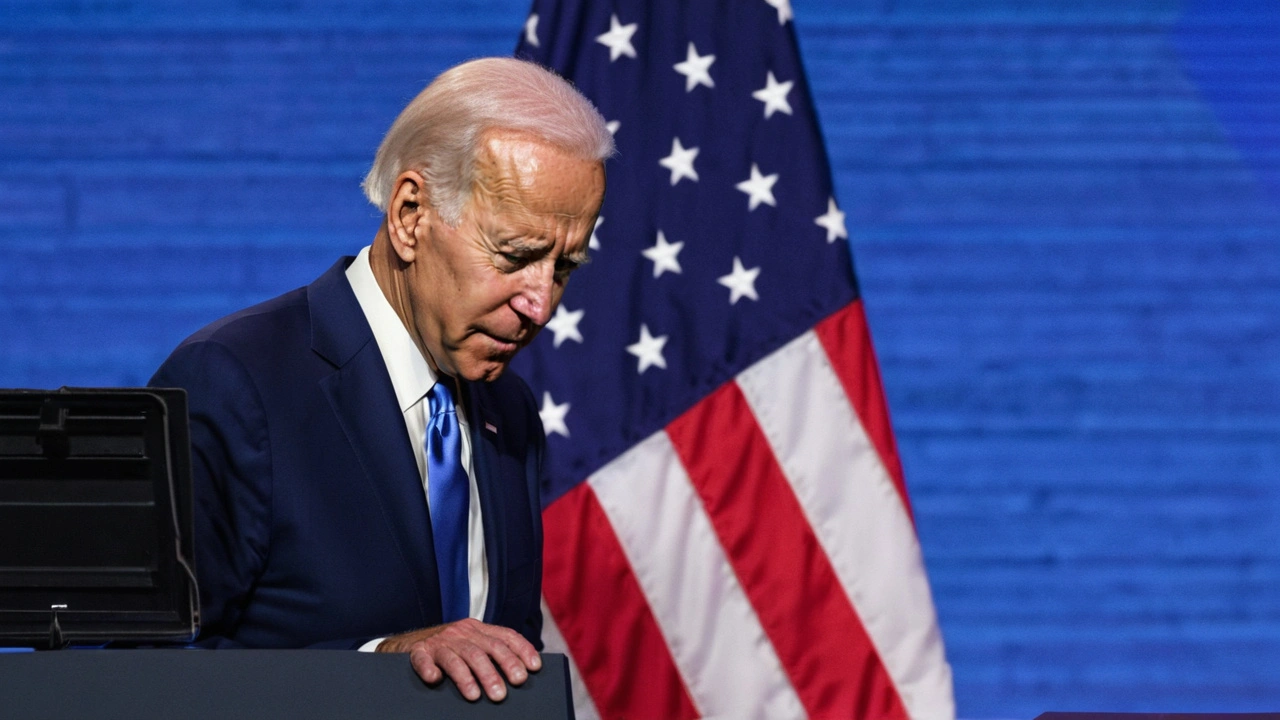
Joe Biden Withdraws from 2024 US Presidential Race Amid Intense Pressure
In a surprising turn of events, Joe Biden, the 81-year-old incumbent President of the United States, has decided to step back from the 2024 presidential election. This announcement comes on the heels of a particularly challenging debate performance against his Republican counterpart, Donald Trump. Biden's decision to discontinue his campaign is significant, given the mounting pressure from various corners of the Democratic Party.
A Shaky Performance and Rising Calls for Resignation
The debate in question was anything but easy for Biden. Observers across the political spectrum noted his faltering speech and difficulty in addressing key issues. This performance gave rise to a wave of criticism, with many pointing to his age and questioning his ability to handle the rigor of another term in office. It wasn’t long before several Democratic members of Congress began openly calling for his resignation. Among them were influential figures who articulated that the time had come for a rejuvenation of leadership in the party.
These calls for resignation added to the snowballing pressure on Biden. For weeks, his camp has been in a state of deliberation, weighing the pros and cons of continuing the campaign. Ultimately, it appears that the voices from within his own party played a decisive role in shaping his choice. The prospect of facing Donald Trump, once again, in a grueling campaign trail also couldn’t be discounted.
Biden’s Address to the Nation
President Biden has indicated that he will formally address the nation regarding his decision to withdraw from the race. The announcement is anticipated later this week, and expectations are high. Many speculate that Biden will not only discuss the reasons behind his withdrawal but also outline his vision for the party's future. There is a palpable sense of anticipation as to who will step up to fill the void left by Biden's exit.
For many of Biden's supporters, this announcement is indeed a bittersweet moment. The President has often been seen as a steady hand during turbulent times and a veteran figure capable of forging consensus in a politically divided landscape. But with this withdrawal, the focus now shifts to the future of the Democratic Party and who will carry its torch in the upcoming election.
Reactions from Political Figures
Responses from political figures across the spectrum have begun to pour in. Some members of the Democratic Party have expressed understanding and support for Biden's decision, acknowledging the toll that the presidency can take on an individual. Other political foes, however, have seized upon this moment to critique the administration's performance and underscore their doubts about the party's strategy moving forward.
Senator Elizabeth Warren, a prominent voice within the Democratic Party, praised Biden's contribution to the nation and emphasized the need for a fresh face in the upcoming election. On the Republican side, Donald Trump has predictably used this development to bolster his narrative, pointing to Biden's withdrawal as evidence of the latter's inability to lead the nation effectively.
The Road Ahead for the Democratic Party
Biden's exit from the race throws the Democratic Party into a new phase of recalibration. The question of who will emerge as the frontrunner for the party remains a hot topic of speculation. There are a few key figures who might step up to the plate, including Vice President Kamala Harris, who has long been seen as a potential successor. Others, like Senators Bernie Sanders and Cory Booker, may also consider throwing their hats into the ring.
The challenge for the Democratic Party now is dual-pronged: to find a candidate who can unify the party's base while also appealing to swing voters. The upcoming primary season will be critical in determining the direction the party will take and the strategies they will employ to counter the formidable Republican campaign led by Donald Trump.
As the political landscape in the United States continues to evolve, one thing is clear: Biden's withdrawal has irrevocably changed the trajectory of the 2024 election. Both parties are now gearing up for what promises to be a fiercely competitive and consequential race. The coming weeks and months will be crucial as politicians and voters alike adjust to this new reality and prepare for the battles ahead.





